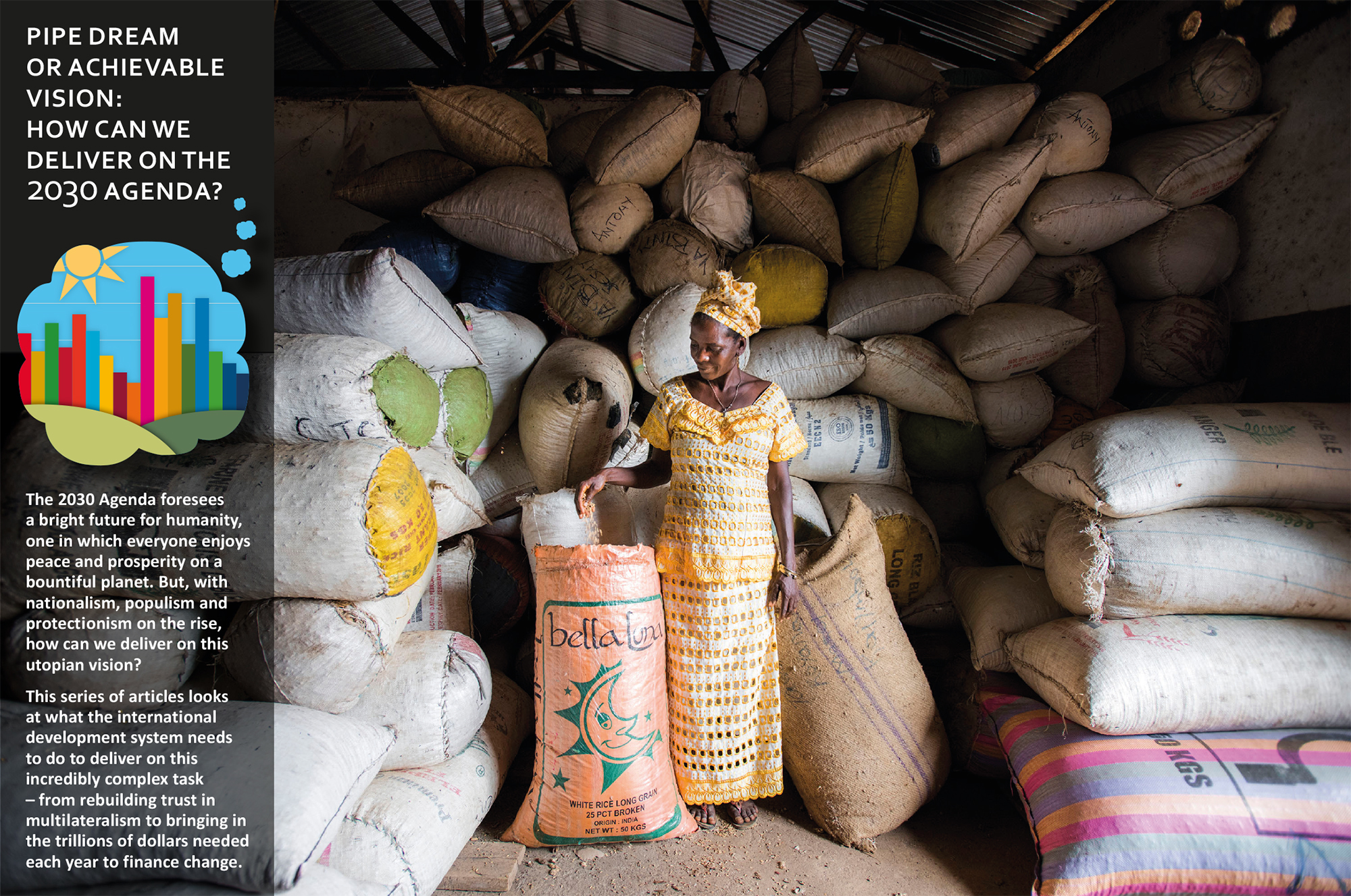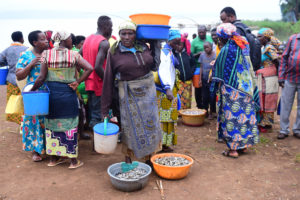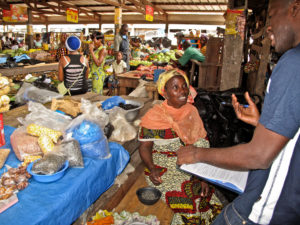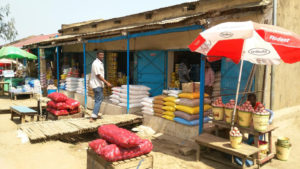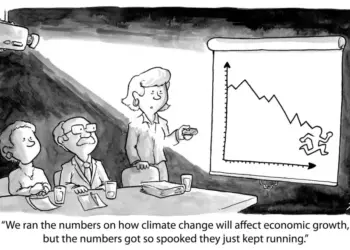SERIES TITLE: Pipe dream or achievable vision: How can we deliver on the 2030 Agenda? The 2030 Agenda foresees a bright future for humanity, one in which everyone enjoys peace and prosperity on a bountiful planet. But, with nationalism, populism and protectionism on the rise, how can we deliver on this utopian vision? This series of articles looks at what the international development system needs to do to deliver on this incredibly complex task – from rebuilding trust in multilateralism to bringing in the trillions of dollars needed each year to finance change. The first article of the series can be found here. The second article of the series – here. The third article of the series – here.
Trade within the context of economics, politics, and policymaking has always had a certain degree of controversy and dispute. People in different parts of the globe have different perceptions of trade. Many have become suspicious about trade in general, in part due to the lack of policies and supportive measures to empower communities, better distribute gains from trade and to minimise the negative impact on income distribution.
Trade and SDGs
When it comes to the role of trade in achieving the SDGs, the Agenda 2030 recognises trade as a key factor in addressing food security, nutrition and promotion of sustainable agriculture (SDG 2), healthy lives and wellbeing (SDG 3), economic growth (SDG 8), inequality (SDG 10), ocean, seas and marine resource (SDG 14), and global partnership for sustainable development (SDG 17). The framework makes it clear that trade is a means to achieve broader objectives, rather than an end in itself. Thus, questions arise on what trade approach should be taken: top-down or “grassroots-up”. What transpires from the Agenda 2030 and from the aid architecture we face nowadays, both approaches are fundamental to achieve the SDGs.
With enough food being produced in the world and yet 815 million people being undernourished, something does not add up. Agricultural and seafood trade can enable conditions for facilitating structural transformation, mobilising different sources of finance, and assuring job creation and social inclusion. Moreover, it contributes to balancing food deficits and surpluses across countries, thereby ensuring stable supplies and contributing to price stability. It can also broaden the choice for consumers and provide a more diversified diet across all seasons. With climate change bringing significant risks to agricultural production and fisheries, trade is likely to become even more significant in the future.
IN THE PHOTO: Women fishing in Rwanda. CREDIT: FAO/Teopista Mutesi
Global angle
It is clear that agriculture trade has a role in fighting hunger, food insecurity and malnutrition and offers opportunities to enable the achievement of the SDGs. However, for the opportunities to be materialised, governments have to improve global markets and create an environment that allows smallholders, in particular from developing countries, to be active participants and develop their livelihoods. It is important to find the right balance between domestic policies for food security and the required compliance with international trade rules and agreements.
Agricultural trade can also be better tailored to achieve the SDGs within multilateral and regional trade frameworks. There are direct references to WTO activities in many of the SDGs, and a well-functioning multilateral trading system can help ensure trade policies and strategies are coherent with national policies. In December 2015, at the 10th WTO Ministerial Conference held in Nairobi, Ministers agreed to the elimination of export subsidies as well as new rules on export credit and international food aid, all under the export competition pillar of the negotiations on agriculture.
Multinationals companies and SDGs
The private sector has a huge role to play in the achievement of the SDGs. Estimates state that the investment needed in key sectors related to the SDGs at the global level is approximately $5 trillion to $7 trillion per year. In developing countries alone, the estimated needs range from $3.3 trillion to $4.5 trillion, leaving an annual funding shortfall of around $2.5 trillion. This means that the successful SDGs implementation will require a significant increase in investment from all available sources, including public, private, international and domestic arenas. Public finances alone – although central and fundamental to the investment in sustainable development – cannot meet the demands for financing development. Indeed, ODA can play a key role in mobilising much-needed finance from the private sector, for example, through guarantees and other forms of blended finance.
Therefore, agribusinesses and multinationals have a leading role to play, but achieving the SDGs requires a substantial change in business practices. It will require companies to contribute to the realisation of the SDGs and proactively minimise the negative impacts of their operations, including those in their supply chains.
Agribusiness needs an enabling structure that can bring much needed investment, and access to knowledge and technology. The incentive structure needs to be there and major companies should increasingly focus on more SDG-friendly strategies. Everyone else will follow suit.
IN THE PHOTO: Women traders being surveyed at a local market. CREDIT: FAO/Lucio Olivero
Local angle
Having established the role of trade and the global angle on how to make it work for the SDGs, it is vital to delve into the “grassroots up” angle. Without any doubt, within the Agenda 2030 it is fundamental to link small farmers to global food value chains. The contributions of family farmers and smallholders to food security, poverty reduction and sustainable development were specifically recognised by the United Nations General Assembly when it declared 2014 as the International Year of Family Farming.
Just to give an idea, there are about 45 million small farms in Africa, many of which consist of subsistence farmers that rely entirely or partially on family labour, comprised mainly of women. In several developing countries, they produce the bulk of these countries’ main agricultural exports.
Their important role has not been matched by policymakers and by the international community: estimates show that 70 percent of the developing world’s 1.4 billion extremely poor people live in rural areas, particularly in South Asia and in sub-Saharan Africa. This is due to several factors, including their limited access to credit, limited assets (including equipment) and low levels of education, especially among women farmers. Smallholders have to have access to the factors of production that are essential for helping them improve productivity.
While still feeling the hardship of food insecurity and malnutrition, smallholders are a heterogeneous group across countries and regions who supply 70 percent of overall food production. Governments have an essential role to play in addressing their specific constraints and maximising potential for beneficial access to reliable and remunerative markets. Enabling the good old “supply and demand” at a local level will empower smallholders. They are key stakeholders in more inclusive and socially and environmentally sustainable agricultural development model and they warrant specific attention in the aspiration to “leave no one behind”.
A “one shot” Agenda needs all in
The majority of donor countries are calling for projects that enhance agricultural productivity, improve access to markets, promote agribusiness, entrepreneurship and connect it with the private sector. This is helpful but, as explained, the link with family farming and small-scale agriculture must not be neglected, in order to be in line with the SDGs. Having innovative financing mechanisms at the international level as well funds from regional and international development banks accessible to smallholders would be key to bring them as efficient players in agricultural value chains.
IN THE PHOTO: Traders selling good in KonyoKony market. CREDIT: FAO/South Sudan
A transformational development like the SDGs cannot rely on one angle only and must overcome trade disputes. Family farming, local actors, and smallholders are the best source of support for achieving SDGs, but well-functioning markets and global indicators require a global approach with all major agricultural countries and institutions fully committed.
Co-authored by Pedro Souza And Pablo Rabczuck
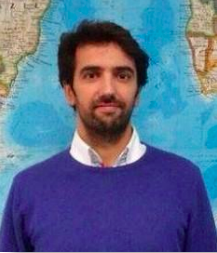 Pedro Sousa is a Market Intelligence Officer at the Food and Agriculture Organization of the United Nations (FAO) who specializes in providing political and economic donor intelligence, development policy frameworks, trends in ODA, and overall aid architecture and development finance. He has also worked as a policy analyst for the Trade and Markets division of the FAO. Prior to joining the FAO, he was a policy analyst for the Development Centre and for the Global Relations Secretariat of the Organisation for Economic Co-operation and Development (OECD). He graduated in Economics and has a Masters in Political Science, both from the University of Minho, in Portugal.
Pedro Sousa is a Market Intelligence Officer at the Food and Agriculture Organization of the United Nations (FAO) who specializes in providing political and economic donor intelligence, development policy frameworks, trends in ODA, and overall aid architecture and development finance. He has also worked as a policy analyst for the Trade and Markets division of the FAO. Prior to joining the FAO, he was a policy analyst for the Development Centre and for the Global Relations Secretariat of the Organisation for Economic Co-operation and Development (OECD). He graduated in Economics and has a Masters in Political Science, both from the University of Minho, in Portugal.
 Pablo Rabczuk is Programme Officer and Outreach and Marketing Coordinator at the Food and Agriculture Organization of the United Nations (FAO). Prior to joining FAO, he was Undersecretary for Cooperation and Technical Assistance at the Latin American Integration Association (ALADI), a regional trade intergovernmental organization. Previously, he worked at the Andean Community’s General Secretariat, as Coordinator for International Cooperation. In Bolivia, he was Deputy-Minister for Transportation and Deputy-Minister for Foreign Trade. He is a graduate from the Fletcher School of Law and Diplomacy at Tufts University with a Masters in International Relations.
Pablo Rabczuk is Programme Officer and Outreach and Marketing Coordinator at the Food and Agriculture Organization of the United Nations (FAO). Prior to joining FAO, he was Undersecretary for Cooperation and Technical Assistance at the Latin American Integration Association (ALADI), a regional trade intergovernmental organization. Previously, he worked at the Andean Community’s General Secretariat, as Coordinator for International Cooperation. In Bolivia, he was Deputy-Minister for Transportation and Deputy-Minister for Foreign Trade. He is a graduate from the Fletcher School of Law and Diplomacy at Tufts University with a Masters in International Relations.
Editors Note: The opinions expressed here by Impakter.com columnists are their own, not those of Impakter.com
Featured Image: FAO


